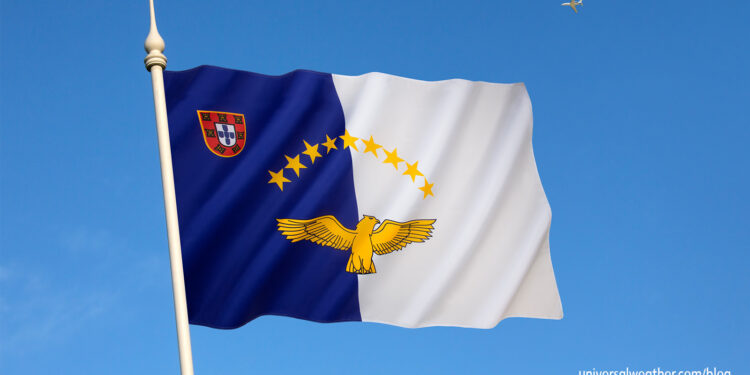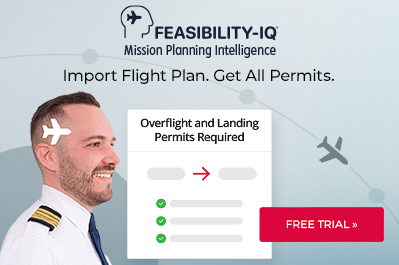Using Santa Maria (LPAZ) as a GA Tech Stop: Part 2 – Documentation and Permits

This business aviation blog post continues from our article last week, titled “Using Santa Maria (LPAZ) as a GA Tech Stop: Part 1 – Airport and Local Area.”
While there are not many documentation or permit considerations to plan for on a Santa Maria (LPAZ) stop, it’s important to pre-arrange airport, handler and fuel delivery overtime services for any night operations.
The following is an overview of what you need to know:
1. Using a ground handler is recommended
When traveling to LPAZ it’s always best to use the services of a local ground handler. This helps ensure that all services and fuel uplifts are arranged and confirmed prior to your arrival. Local handlers may be able to set up, with advance notice, passenger vehicle access to the airside ramp area. If you wish to have private vehicle pick up/drop off airside it’s best to confirm available options with your handler. However, as all parking spots are close to the terminal, so there’s usually no need for this service.
2. Permits are necessary for certain operations
Overflight and landing permits are required for aircraft on experimental certificates and for non-ICAO registered aircraft – such as Indonesian or Philippine registered aircraft. You’ll also require landing permits for travel to any non- airport of entry (AOE) airports in Portugal, including the Azores. Plan on lead time of four days to secure any necessary permits for your operation. It’s recommended that you confirm, 24 hours in advance, whether permits are required for your particular flight.
3. Permit validity, revisions and short notice requests
Permits are valid for the entire Zulu day. If there’s a change of schedule, beyond the Zulu day or to origin/destination, Civil Aviation Authority (CAA) notification is required. Short notice permit requests (less than four business days) may be considered, but are at CAA’s discretion. CAA hours of operation are Monday-Friday 0930-1230 and 1400-1700 local, and the office is closed on weekends and holidays.
4. Paperwork requirements
Your ground handler will assist with all paperwork that needs to be presented on arrival – such as a required special Gen Dec. It’s always best to provide your local handler with all crew and passenger information in advance. Worldwide and standard European Union liability insurance coverage is sufficient for operations to the Azores.
5. Required documentation for charter landing permits
When charter landing permits are needed, certain documents are needed. Below are some documents that must be submitted with a charter landing permit request provided:
- Insurance certificate that covers legal liability to passengers, cargo, mail and baggage, legal liability for damages to third parties including third party liability arising from an act of war, hi-jacking and other perils
- Airworthiness certificate
- Registration certificate
- Declaration of competency or air operator’s certificate and operating license
- 8.33 kHz – VHF spacing channels
- TCAS II certificate
- Radio station license
6. Flight plan revisions
If your flight is delayed 30 minutes or more it’s best to work with your trip support provider regarding flight plan changes, to ensure the delay will not impact down line arrangements – such as permits, airport slots etc.
7. Visa considerations
The Azores being part of Portugal is within the Schengen region, and Schengen visas are required depending upon nationality. When visas are needed, they must be obtained in advance as they will not be issued on arrival. Note that crew/passenger visas are not needed for international tech stops when crew/passengers don’t leave the secure area of the airport and no one embarks/disembarks the aircraft.
8. Charter restrictions
Portugal’s definition of a charter flight is not generally applicable to GA charter operations. Traditional GA charter flights are considered “private” or “own use” operations by INAC, and no charter permits are required. Portugal’s definition of “own use” category flights:
This is a flight that is performed either for a person (individual, firm, corporation, or institution) who charters the entire capacity of the aircraft or for the operator himself for the carriage of:
- Himself and/or the company’s staff and/or goods, or
- Persons associated with the charterer, provided the flights:
- Are of occasional character
- No part of capacity is resold
- The charter price is not shared by the passengers
No commercial arrangements are made for the total or partial, direct, or indirect, payment of the flight cost by persons other than the charterer or the owner of the aircraft.
Conclusion
For charter operators flying to LPAZ it’s important to confirm any overflight or landing permit requirements with your trip support provider and/or local ground handler. In many cases permits are not needed for travel to Portugal.
Questions?
If you have any questions about this article or would like assistance planning your next trip to LPAZ, contact me at alexandraferullo@univ-wea.com.




